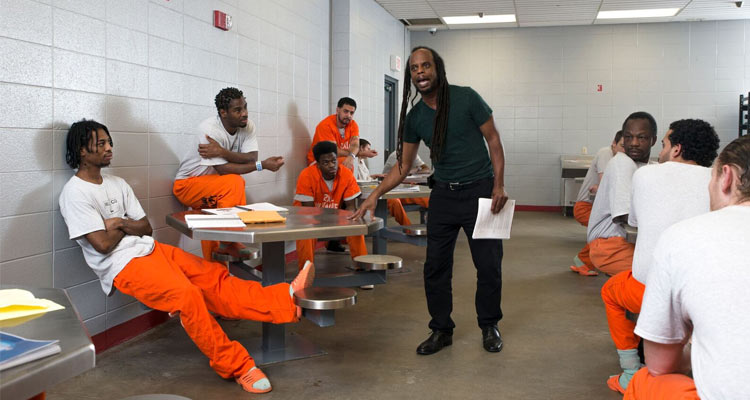What have you heard about the city of Milwaukee lately? What have you read? Particularly if you don’t live in Milwaukee, but even if you do, the media hasn’t been painting a pretty picture. Along comes a documentary film called Milwaukee 53206, which premiered at a sold-out Oriental Theatre screening in June. You might be expecting a gritty, depressing litany of statistics and tragedies about the city’s poorest zip code, but you’d be wrong. On a drizzly Saturday afternoon during the 2016 Milwaukee Film Festival, the Oriental was filled to capacity once again, and festival-goers witnessed not just illustrations of problems, but portraits of people working towards solutions, as well as ideas for how to support the groundswell of change already happening in Milwaukee.
The film’s central narrative deals with the family of Beverly Walker, whose husband, Baron, has been incarcerated for 21 years, trapped like thousands of other inmates in a bureaucratic loop in the aftermath of Wisconsin’s 1998 enactment of “truth in sentencing,” which effectively eliminated the parole system that would have most likely permitted Baron’s early release. In between work and taking care of children and grandchildren as well as her mother, Beverly has taken it upon herself to fight for her husband’s freedom. The process has evolved into working with local faith-based groups to raise awareness about mass incarceration, and starting her own website where people can learn about the state’s broken parole system and how to help the cause of reuniting families.
The film also profiles community organizer and activist Dennis Walton, co-director of the Milwaukee Fatherhood Initiative. Walton grew up in 53206 and had his run-ins with the legal system in his youth, but was able to break free of the cycle and is now a leading light in promoting positive change in the neighborhood, where he still resides. We see him leading conversations on AM radio with Milwaukee Chief of Police Ed Flynn and District Attorney John Chisholm in attempts to get to the root of the city’s problems and bridge the gap between the community and law enforcement. Walton holds seminars for incarcerated men, teaching them about the importance of fatherhood and family in stopping the cycle of imprisonment and preparing them for stability and productivity upon leaving the prison system.
One man who benefitted directly from Walton’s efforts is Chad Wilson, another 53206 resident who spent 10 years within the criminal justice system. Under Walton’s tutelage, Wilson found the will to leave street life behind and become a positive role model for his five children. Ultimately, Wilson’s desire to give back to the organization that helped him see the light led Walton to hire him on as an outreach specialist for the Milwaukee Fatherhood Initiative.
While the film deals directly with one specific neighborhood—the most incarcerated zip code in the nation, with a staggering 62% of adult males having spent time behind bars—it spends little time focusing on numbers or negativity. The key theme is the rejection of shortcomings turning into life sentences, a concept that should hit home for anyone who’s ever regretted a past misstep. All three of the film’s main protagonists as well as director Keith McQuirter appeared onstage following the MFF screening for a discussion with Bonnie North, producer and co-host of WUWM’s Lake Effect program, and it was clear that no one involved in this fight was looking to play victim. “We’re trying to humanize the stories behind the statistics,” McQuirter said, with Walker emphasizing the harmful effects of dismissing people as “felons” and “convicts.”
A second discussion followed, with representatives from Clean Slate, Employ Milwaukee, Boys and Girls Clubs of Greater Milwaukee, and We Got This, Inc. all taking the stage, with most of the audience still in their seats. It would’ve been difficult to walk away from this forum with a pessimistic attitude, as the conversation focused on these community leaders’ efforts to provide support ranging from childhood to reentry services for men and women getting out of prison. One can only assume that at least some attendees left the proceedings armed with some concrete suggestions about paths to change.

